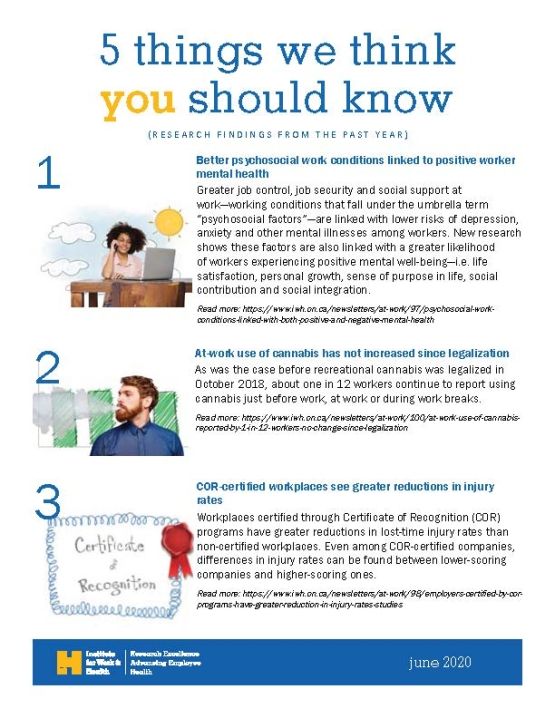
Better psychosocial work conditions linked to positive worker mental health
Greater job control, job security and social support at work—working conditions that fall under the umbrella term “psychosocial factors”—are linked with lower risks of depression, anxiety and other mental illnesses among workers. New research shows these factors are also linked with a greater likelihood of workers experiencing positive mental well-being—i.e. life satisfaction, personal growth, sense of purpose in life, social contribution and social integration.

At-work use of cannabis has not increased since legalization
As was the case before recreational cannabis was legalized in October 2018, about one in 12 workers continue to report using cannabis just before work, at work or during work breaks.

COR-certified workplaces see greater reductions in injury rates
Workplaces certified through Certificate of Recognition (COR) programs have greater reductions in lost-time injury rates than non-certified workplaces. Even among COR-certified companies, differences in injury rates can be found between lower-scoring companies and higher-scoring ones.

Scores on an eight-item questionnaire align with observed OHS policies and practices
A short questionnaire called the Institute for Work & Health Organizational Performance Metric (IWH-OPM) can provide a quick snapshot of the adequacy of a workplace’s occupational health and safety (OHS) policies and practices. This is based on the finding that high IWH-OPM scores correspond with the observed OHS practices and policies of higher-performing organizations.

Women’s work more likely to be disrupted due to caring for older relatives
Even if working in similar jobs for similar pay, women are 73 per cent more likely than men to permanently leave a job due to eldercare responsibilities. They’re also five times more likely to work part time and twice as likely to take time off during the work week to care for their older relatives.
